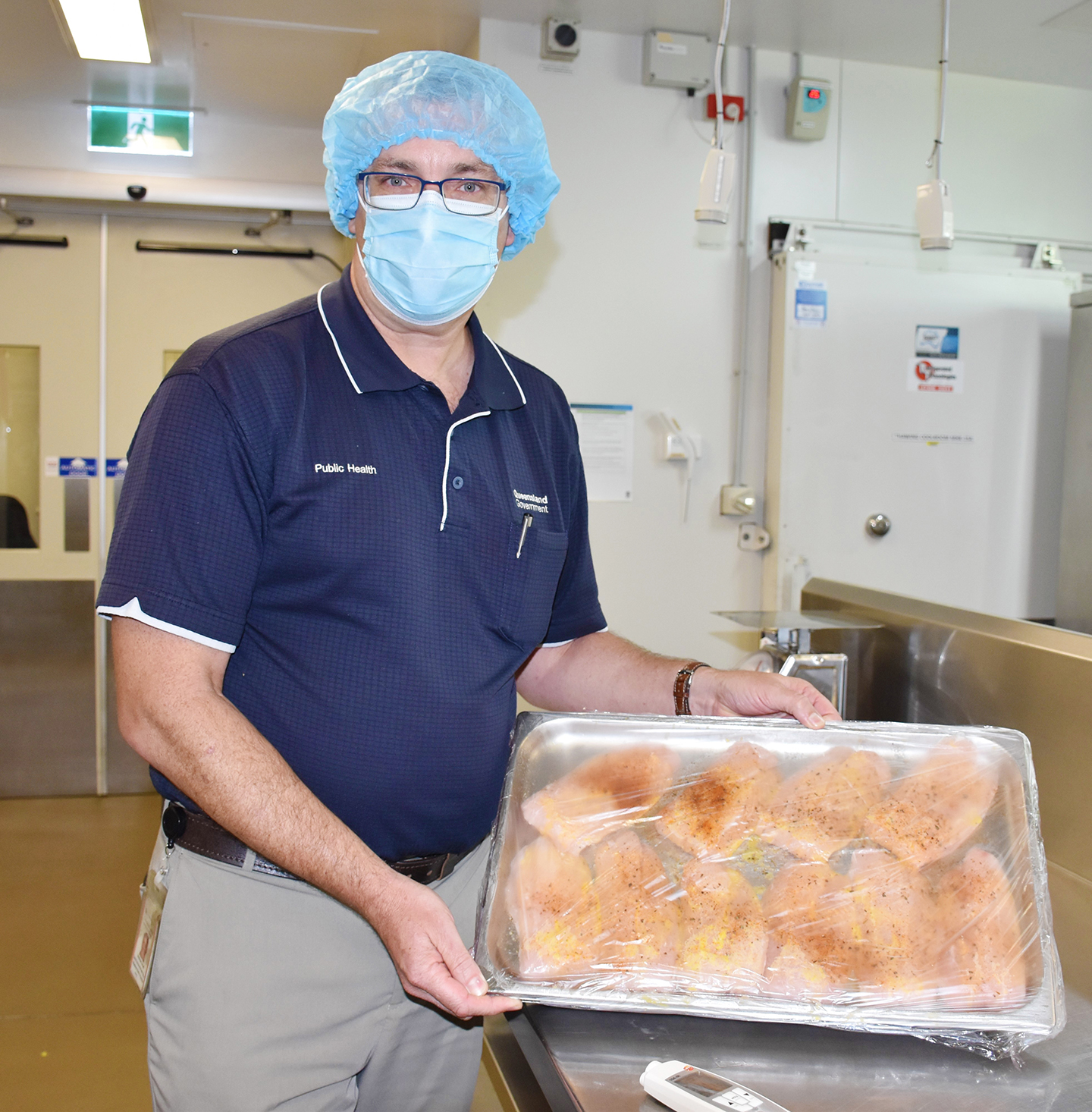


Image: Mackay Public Health environmental health team leader Andrew Jones
Do you know Campylobacteriosis from Cryptosporidiosis or Salmonellosis from Yersiniosis?
These gastrointestinal diseases can make you seriously unwell and are the most commonly reported foodborne illnesses across the Mackay, Isaac and Whitsunday regions.
Mackay Public Health environmental health team leader Andrew Jones said Food Safety Week last month presented a reminder of safe food practices at home and the importance of reporting and testing to confirm a foodborne illness.
“Queenslanders celebrate with food. With the festive season upon us, this is an ideal time for people to brush up on food safety to avoid getting sick,” Mr Jones said.
“This year’s theme ‘Food safety – raw and risky’ warns about the risks of eating raw or minimally cooked foods, including meat, poultry, fish, eggs and veggies, which can increase your chance of getting food poisoning and possibly a parasite infection.
“A number of bugs can cause food poisoning, however, the two most common foodborne illnesses are Campylobacter and Salmonella. Both of these can be caused by people either eating food raw or not adequately cooking food,” he said.
“Year to date, there have been 286 reported cases of Campylobacter and 165 for Salmonellosis across our health service. Across Australia, food poisoning accounts for an estimated 4 million cases, almost 48,000 hospitalisations and sadly 38 deaths*.”
Knowing how to prepare, cook and handle food properly ensures that food does not become contaminated, and makes sure that harmful organisms are killed, or that their growth is slowed or stopped.
“Keep yourself and your family safe by cooking food thoroughly using a digital food thermometer to check the internal temperature on the thickest part of the meat.” he said.
“Contamination can occur when food is handled or processed by people with unclean hands, is processed with equipment that isn’t clean, or is cross contaminated by other food.
“Hygiene is important. Thoroughly wash your hands with warm soapy water before handling food and then again at each change of food group.
“Swap all used utensils and cutting boards when you change food groups and always wash everything with hot soapy water when you have finished.”
Mr Jones said foodborne illnesses vary in severity with people usually experiencing diarrhoea, nausea, vomiting, abdominal cramps or a fever.
“Most people recover within a few days with rest and fluids but food poisoning can make you seriously ill, and can be fatal in some cases.
“Early intervention helps to identify potential outbreaks and laboratory analysis helps identify the source of infection or contamination which may help prevent further cases of illness.
“If you suspect you have suffered food poisoning, seek medical attention and request a pathology sample to be collected, especially if you experience vomiting or diarrhoea.
“The Queensland Health Food Pantry website is a great resource providing information on food hygiene tips, advice about what to do if you suspect food poisoning and how to report a food safety issue.”
• thaw food in the refrigerator or microwave
• uncooked meats should be kept covered and separated from cooked foods and ready-to-eat foods to avoid cross contamination
• do not re‐freeze food once it has been thawed
• make sure all food used is fresh and within the use‐by date
• cook all meat, chicken and eggs thoroughly
• make sure hot foods are hot (above 60°C)
• make sure cold foods are cold (below 5°C)
• cool left-over food in small containers in the fridge. Food should be cooled from 60°C to 21°C within 2 hours and from 21°C to 5°C within a further 4 hours